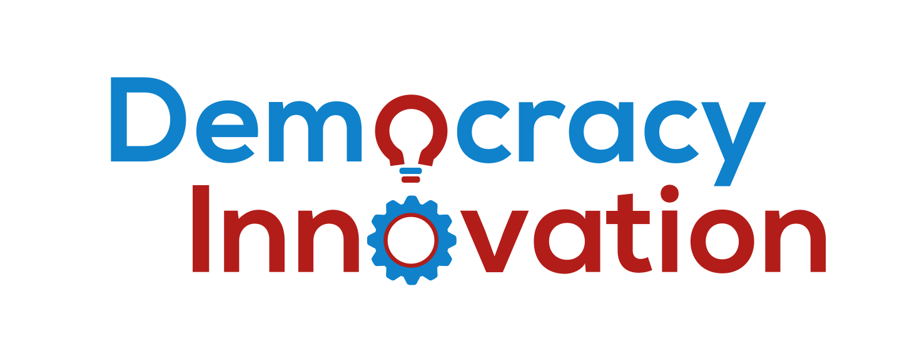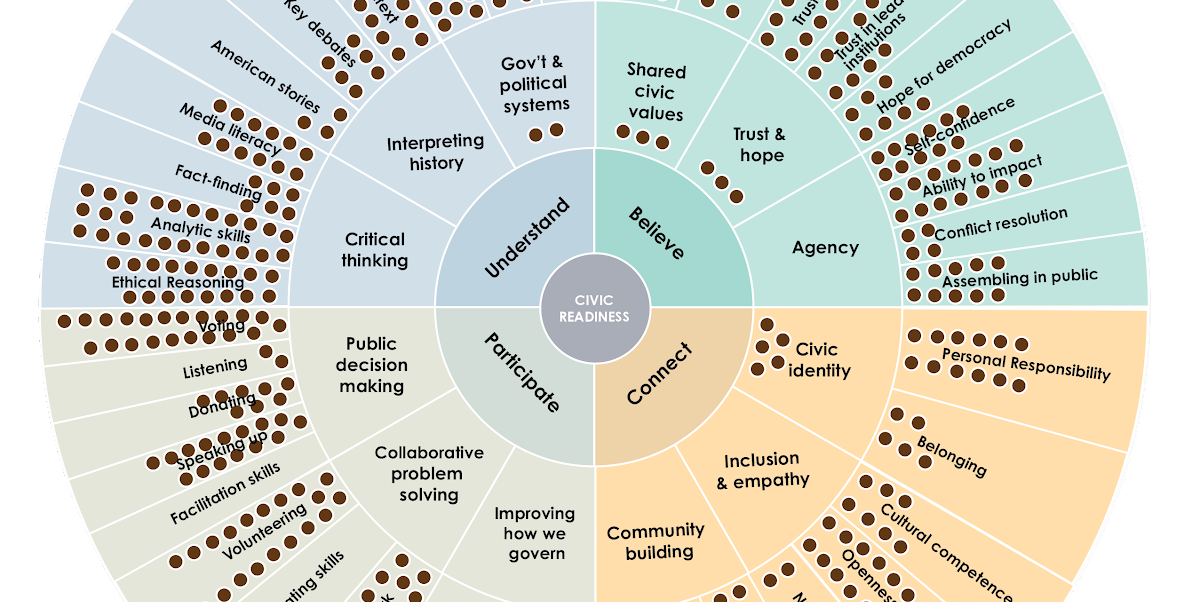Center for Democracy Innovation
Contact UsMaking democracy more participatory, equitable, and productive.
 The mission of the National Civic League’s Center for Democracy Innovation is to understand, test, and disseminate innovations that can make democracy more participatory, equitable, and productive. We work to sustain democracy by inviting people to help redesign the “civic infrastructure” of their communities, scale democracy through strategies for inclusive engagement to improve equity and governance, and measure the quality of democracy and engagement, particularly in ways that lift up the views and ratings of residents.
The mission of the National Civic League’s Center for Democracy Innovation is to understand, test, and disseminate innovations that can make democracy more participatory, equitable, and productive. We work to sustain democracy by inviting people to help redesign the “civic infrastructure” of their communities, scale democracy through strategies for inclusive engagement to improve equity and governance, and measure the quality of democracy and engagement, particularly in ways that lift up the views and ratings of residents.
The real work to improve democracy is happening at the community level. Local leaders of all kinds are generating new ideas and practices to help people make decisions and solve problems together. The Center examines, supports, and shares these innovations through hands-on technical assistance in communities.
Working with the Center
Are you…
- Trying to make official public meetings more participatory, civil, and productive?
- Seeking equity – not only by involving people from all walks of life in public decision-making, but by ensuring that the decisions and outcomes of those processes are themselves equitable?
- Aspiring to give young people in your community – including young people from all walks of life – better opportunities for civic education, engagement, and leadership?
- Uncertain about how to integrate digital tools in your work with the public, how to choose from the many tools available, how to use technology equitably, and how to give community members a say in its use?
- Concerned that the laws and ordinances governing public participation in your community are outdated and difficult to interpret?
- Looking for strategies that will help you engage large, diverse numbers of people – potentially across a whole region, state, or the country – that combine scale, reasonable deliberation, and good information?
- Seeking ways to work effectively with neighborhood associations, parent associations, and local online networks?
- Trying to get a better sense of the that influence how you work with the public and how you collaborate with other organizations?
…then we want to offer tools, approaches, and insights, learn from your experiences, and share with you what other communities are doing. The tools we use include:
Civic Infrastructure Scans. Local leaders need to know what pitfalls to avoid and what assets they can count on. The Scan is a qualitative research methodology that examines the strengths and gaps in the support structure for local democracy, including the recent history of engagement, skills and capacities present in the community, and the state of discussion online. Each scan consists of semi-structured qualitative interviews with key local leaders, media and social media analysis, and desk research.
Planning Processes to Improve the Infrastructure for Engagement and Collaboration. The National Civic League and Center for Democracy Innovation can provide on-the-ground assistance to help communities renovate their civic infrastructure, including upgrades to:
- Official public meetings and other regular opportunities for engagement
- Digital engagement interwoven with texting-enabled and in-person processes
- Strategies for advancing equity and measuring progress
- Youth civic engagement opportunities
- Engagement opportunities for older adults
- Supports for neighborhoods and local online networks to help them build community, engage more people, and connect with government
- City charters and other foundational documents
- Skill-building opportunities for staff, elected officials, and traditional and nontraditional community leaders
- Other core elements of civic infrastructure
Engagement Scorecard. Public meetings can be productive and powerful – but in order to make them work for people, it helps to have ways of gauging participant satisfaction quickly and easily. The Scorecard is a quantitative, “user-centered” data-gathering tool hosted on the Alchemer platform. It gives people a fast, tag-based system to rate public engagement opportunities and the overall quality of local democracy and civic health. It offers various ways to visualize collated data. Crucially, the way the Scorecard works emphasizes the fact that many different leaders and organizations are responsible for sustaining democracy, and that collaboration among those institutions is critical.
Facilitation in Controversial or Crisis Situations. The Civic League can offer the expertise of veteran local leaders and practitioners for dealing with controversial or crisis situations, including recovery from natural disasters, managing police reform and public safety conversations, or processes for renaming city assets such as buildings, streets, plazas and parks.
Contact the Center to talk about your local challenges and how these offerings might help engage your community.
What we’re up to
Supported by the AAA-ICDR Foundation, the “Democracy Innovations for Better Public Meetings” project is working to make official public meetings more civil, deliberative, and productive. The Center will help communities implement better engagement practices in public meetings and hearings, measure the progress of these efforts through a Civility Index, and scale the emerging tools, practices, and lessons through a national network of local leaders.
 The “Healthy Democracy Landscape” mapping project will identify, categorize, and quantify existing organizations, networks, and funding streams within the American democracy space. In late 2023, we’ll release a graphic, compelling website that allows users to explore the ecosystem of organizations, coalitions, networks, and funders promoting healthy democracy. This project is supported by Howard Konar and Sandy Gottesman.
The “Healthy Democracy Landscape” mapping project will identify, categorize, and quantify existing organizations, networks, and funding streams within the American democracy space. In late 2023, we’ll release a graphic, compelling website that allows users to explore the ecosystem of organizations, coalitions, networks, and funders promoting healthy democracy. This project is supported by Howard Konar and Sandy Gottesman.
For the second year, we’re organizing an event for legislators from different countries to learn from each other about innovative ways to engage with their constituents. Last year’s forum brought parliamentarians from Argentina, Brazil, Germany, and the European Union to Capitol Hill to meet with Members of Congress. The Global Innovations in Democracy exchange will take place again this fall.
We’re supporting community conversations on local priorities such as public safety, homelessness, and public services. For example, in Grand Rapids, Michigan the team facilitated small-group discussions to gather input and inform policymakers on needs, service gaps, and budget priorities related to public safety and the unhoused population.
The Center is working to understand the democracy enhancing and saving work that local civic leaders are doing around the country. Our research with a diverse set of people in government, grassroots and non-profit organizations indicates that there are at least five areas of work that the leaders are contributing to democracy in the face of national polarization. For more information, read our Local Civic Leaders report.
The National Civic League and Center for Democracy Innovation have partnered with the National Conference on Citizenship for the November 30th, 2023, conference entitled The Future of Citizenship. Leading up the conference we are releasing a series of articles to reflect upon normative and practical questions regarding the work of local civic leaders, and the ecosystem of healthy democracy work being done by organizations across the country.
Why innovate?
The form of democracy we have in the United States today is about 100 years old. In many ways it has served us well, but it no longer meets the needs and goals of Americans. In order to survive, democracy must evolve.
The social, economic, digital, and environmental shifts that have made our current form of democracy obsolete are in many ways positive changes, and we can capitalize on them. People are more educated than ever before, they are less deferential to authority, and social media plays a steadily increasing role in their lives. We are used to having choices in all aspects of our lives. When it comes to governance, Americans still want to elect their representatives, but they don’t want officials do all the governing. People want more meaningful roles in public decision-making and they can contribute more to public problem-solving.
Americans favor democracy innovations that would give them greater authority and voice, along with more equitable, deliberative, collaborative relationships with their governments. Support for these measures ranges from 75% to almost 90%, without significant differences between parties. These reforms and practices include engagement commissions, large-scale deliberative processes, serious games, participatory budgeting, citizen’s assemblies, SMS-enabled discussions, youth voice programs, and many others. These kinds of innovations have already been instituted in other countries, from Iceland to Taiwan to Colombia.
At the Center for Democracy Innovation, we work to understand, test, and disseminate innovations that can make democracy more participatory, equitable, and productive. With long-time partners and new ones, we are exploring ways to:
- Scale democracy through strategies for engaging people in state and federal decisions about pressing issues like health, education, and climate change. The Center continues the National Civic League’s long tradition of offering tools and partnerships that can give people a meaningful say on the policies that affect their lives.
- Sustain democracy by inviting people to help redesign the “civic infrastructure” of their communities. This particularly important for involving a broader range of people, especially marginalized and underserved communities, so their voices are heard, their efforts to solve problems are supported, and their community networks are strengthened.
- Measure democracy so that officials and citizens can chart their progress. By taking stock of local conditions through our Civic Infrastructure Scans, and by allowing people to rate their communities through the Engagement Scorecard, we are giving everyone a role to play in improving democracy. These measurement tools can also show the connections between civic health and major social indicators like poverty, health, and environmental resilience.
The work of the Center complements the historic and current mission of the National Civic League. Strengthening civic infrastructure and supporting systemic change are central to both; while the League upholds valuable institutions like the All-America City Award, National Civic Review, and the Model City Charter, the Center pushes new practices and reforms through a combination of new technologies, applied civic research, and strategic convenings. The fundamental question before us is not just “How can we save democracy?” but “What kind of democracy do we want?”
Featured Success Stories and Resources
Thank You to Our Key Partners



